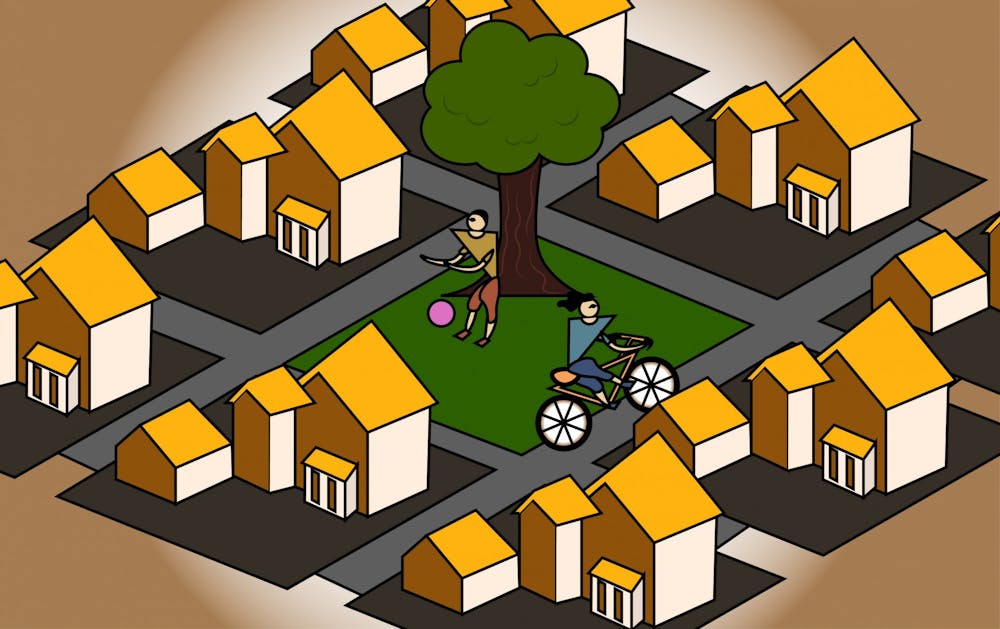In a city filled with bustling traffic and transportation options, one company is putting the pedal to the metal as it works to create Tempe’s first car-less community.
Culdesac, a San Fransisco developer, will build the Culdesac Tempe community on a 16-acre site at 2025 E. Apache Blvd., according to a statement from the company. The development, which opens in the fall of 2020, will be located less than three miles away from ASU’s Tempe campus. The location has extra meaning to the five team members who graduated from ASU.
“Tempe was chosen for many reasons, among them its dense job center, various mobility options including a light-rail station, and collaborative, forward-thinking government,” Ryan Johnson, co-founder of Culdesac said in an email.
Johnson also said Culdesac Tempe will be priced competitively with new apartment buildings in the Tempe area.
According to a press release, the $140 million community will house a thousand residents and include amenities including a grocery store, coffee shop and retail spaces among others.
Though the community will not have any resident parking, some spaces will be provided for visitors and ride-share companies.
The lack of parking lots on the development grants Culdesac Tempe more useable “green space” for community spaces and courtyards, according to the press release. The community will be designed, built and managed by Culdesac.
“I think it’s time we tried some different things,” Paul Prosser, a program manager at the School of Sustainability, said.
He said the proposition of minimal parking spaces in Culdesac Tempe is an idea that, if widely adopted, could potentially help decrease the urban heat island effect.
Reducing the use of concrete, which stores heat throughout the day, could result in lower overall temperatures.
Prosser also said now is a good time for a community like this due to transportation game changers like Uber and Lyft.
However, the idea of a car-free community is not appealing to all Tempe residents. Olivia Stickel, a sophomore majoring in marketing, said the convenience of owning a car outweighs the excitement of a community like Culdesac Tempe.
“I’d say it’s very limiting,” Stickel said. “If you happen to work in Tempe nearby I could see how a community like this could work, but not everyone has that luxury.”
She said owning a car allows her to travel to work and visit her family, two things she would not give up when looking for potential homes in the future.
According to the press release, Culdesac Tempe is the nation’s “first and only agreement between a city and a developer to build a neighborhood-scale community with zero residential parking.”
Although the community may be the first of its kind, car-less apartment complexes are not a new development. Most living communities that do not include parking were built decades ago, before cars were ingrained into society.
“This idea isn’t unique relative to historic norms of city building,” David King, an assistant professor in the School of Geographical Sciences and Urban Planning said. “Nevertheless, it is encouraging to see this happening.”
King said the community would be best suited to the needs of students or young professionals who both live and work in Tempe.
He also said he believes ASU’s presence in Tempe was a deciding factor in where Culdesac would develop its car-free community.
“With a university of this size, there is no question that you’ll find a thousand people who would like to live near campus and don’t have a car,” King said.
Reach the reporter at kreinha3@asu.edu and follow @ReinhartKatelyn on Twitter.
Like The State Press on Facebook and follow @statepress on Twitter.
Continue supporting student journalism and
donate to The State Press today.




